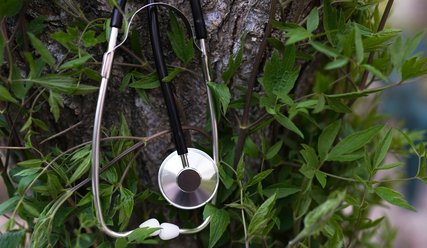GPs want patients to be seen, heard and known
It has been less than a month since I started in the RNZCGP medical director role, and it has been a whirlwind of handover, meetings, and many new faces.
There is a lot of great work already under way, which I am looking forward to progressing. Underpinning everything I plan to do is the ongoing need to promote and advocate for our specialist GP and rural hospital medicine workforces, as well as the vital role we play. The country needs a health system built on a foundation of well-resourced and sustainable primary care led by specialist GPs.
If you were to ask me what I would like to achieve or what changes I would like to see implemented during my time in the medical director role, I would point you to the report I published earlier this year called, The Heart of Healthcare: Renewing New Zealand’s Primary Care System, which delves into the crucial role of continuity of care in general practice and the systemic barriers hindering our ability to provide this effectively.
Continuity of care is what sets us apart from other medical specialties. Continuity of care enables people to live longer, healthier, and happier lives, ultimately saving the healthcare system a significant amount of money. Without it, we cannot do our jobs properly. The current focus is on increasing patient access to a GP, but if you only look at access without also considering the need to protect and promote continuity of care, we are in danger of focusing only on improving access for acute need and not for the regular monitoring required for long-term conditions such as diabetes, or for health promotion and prevention.
Responses from the college’s 2024 Workforce Survey offered a glimpse into what our GP members love about their profession, and not surprisingly, continuity of care was right at the top, with members saying:
- “The patients. I have known many of them for many years. I feel very privileged to have been able to share so many aspects of their life, and often very personal experiences.”
- “Intergenerational care.”
- “The positive difference we make to our patients and community over time.”
The increased funding to support GP training is a huge step forward. However, it is not enough to recruit new doctors; we must retain the ones we have. Funding is urgently needed to improve the conditions under which specialist GPs work. The college’s Your Work Counts project revealed how much of our time is spent on vital non-patient-facing tasks, and this continues to be largely unpaid.
There has been a rapid expansion of our practice teams. Specialist GPs need to lead, coordinate and supervise their teams so that they provide the best quality patient care. Our training and funding must reflect this change to support specialist GPs becoming team leaders.
Funding needs to enable continuity of care and reflect the work that we are actually doing. Without this, we will not have a sustainable workforce.
Another focus area is artificial intelligence (AI). The Workforce Survey indicates that we are a membership that carefully incorporates available tools into our daily work to reduce some of the workload associated with transcribing patient notes. However, concerns exist regarding data privacy, data sovereignty, and system integration.
With the rapidly evolving AI landscape showing no signs of slowing down, we need to ensure our training and ways of working are adapting and keeping up with these new tools and technologies. Using AI to support diagnosis and data management will be an option available to us in the near future. Identifying how best to incorporate AI into our day-to-day work - so that we, and our patients, have confidence in the accuracy, safety and privacy of our conversations, diagnoses and data - should be a priority area for us and the wider health sector.
Funding, recruitment and sustainability issues are even more acute for our rural specialist GPs and rural hospital medicine specialists. College president Luke Bradford will be addressing these issues with relevant ministers over the coming months.
Successful advocacy takes time, collaboration and strategic planning. Hearing from the membership helps us to develop our areas of focus and formulate action plans to achieve our goals.
I am looking forward to working with Luke, college chief executive Toby Beaglehole, and the college team to progress these advocacy efforts.
This editorial was published on New Zealand Doctor Rata Aotearoa on 11 September 2025

